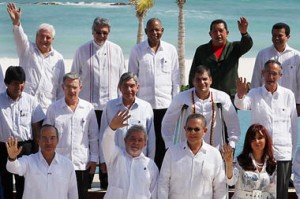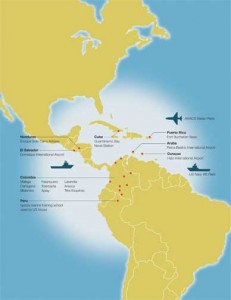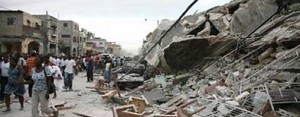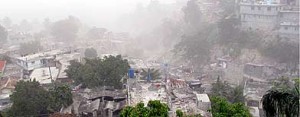Chavez Calls Sentence in CIA's Online Almanac “A Declaration of War” Against Venezuela
If you've ever been curious to know any country's GDP, literacy rate, languages, etc., at a glance, the CIA's online World Factbook is the place to start.
And evidently Venezuelan President Hugo Chavez has been Googling his own country lately, because he's taken serious issue with the sort of government-issue Wikipedia's summary description of the South American nation.
From the CIA World Factbook:
“…For most of the first half of the 20th century, Venezuela was ruled by generally benevolent military strongmen, who promoted the oil industry and allowed for some social reforms. Democratically elected governments have held sway since 1959. Hugo CHAVEZ, president since 1999, seeks to implement his “21st Century Socialism,” which purports to alleviate social ills while at the same time attacking globalization and undermining regional stability. Current concerns include: a weakening of democratic institutions, political polarization, a politicized military, drug-related violence along the Colombian border, increasing internal drug consumption, overdependence on the petroleum industry with its price fluctuations, and irresponsible mining operations that are endangering the rain forest and indigenous peoples.”
The text above constitutes, according to Chavez this past week, “a declaration of war.”
Phi Beta Iota: Chavez is right, CIA is wrong. A World Factbook is not the place for subjective politicized “judgments,” and if one wishes to speak about the Open Veins of Latin America–Five Centuries of the Pillage of a Continent, the CIA should cut its own throat first or to use another metaphor, not throw stones when it lives in a glass house. CIA is no longer the destructive monster it used to be, but perhaps worse, Clowns in Action or Contractors in Action, take your pick. CIA should remove the offending words and surprise Venezuela with a printed corrected copy of the book, and a letter of apology–and it can apologize for its last bungled coup attempt while its at it. Newsflash for CIA: imperial globalization bad, indigenous self-determination good. Duh.
See also:
Continue reading “Journal: Chavez versus CIA–No Contest”








